Overview
Our guided City Tours are a wonderful introduction to the culture, cuisine and history of the Azores.
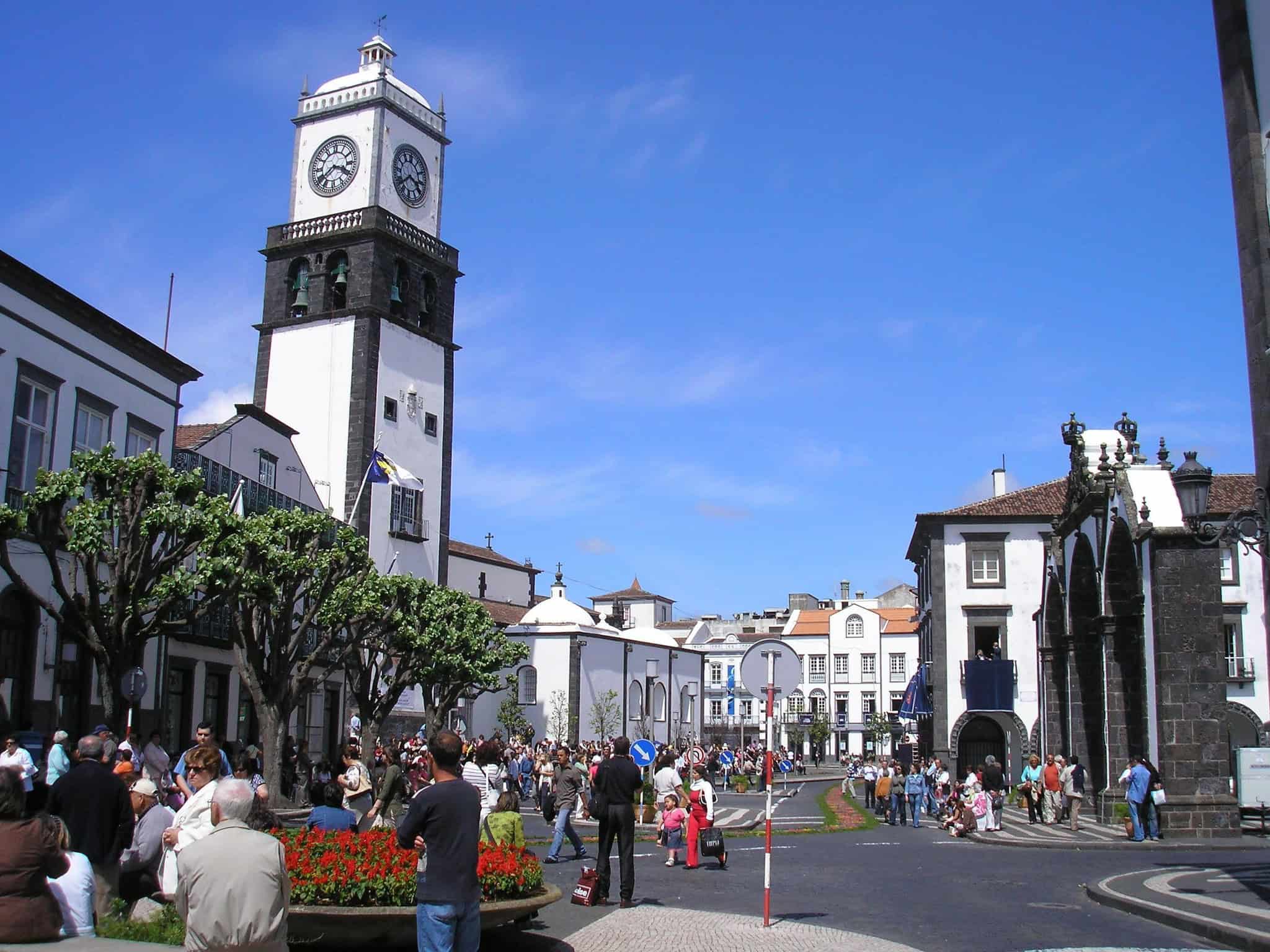 The nine islands of the Azores are treasured for their peaceful, rural tranquillity and the timeless beauty of their landscapes. But it’s the towns and cities which are the keepers of Azorean culture, making them the ideal locations for immersing yourself in the day-to-day of island life.
The nine islands of the Azores are treasured for their peaceful, rural tranquillity and the timeless beauty of their landscapes. But it’s the towns and cities which are the keepers of Azorean culture, making them the ideal locations for immersing yourself in the day-to-day of island life.
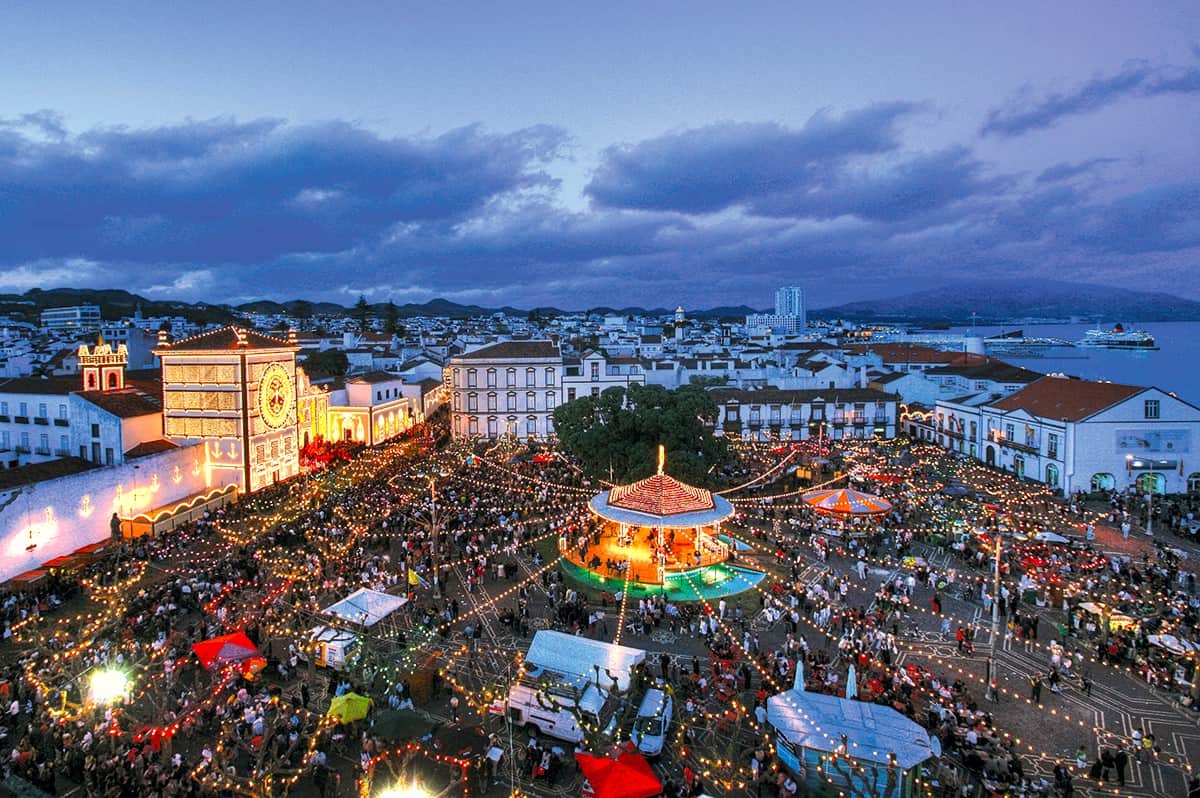
The Azores were once key to trans-Atlantic travel, both as a vital navigation beacon and a resupply point for ships returning to Portugal from her Indian and Brazilian colonies. The capital Ponta Delgada was often a mid-Atlantic meeting point for the great and good of European sea trade in the 16th and 17th centuries and the island’s saw an influx of spices such as black pepper, cinnamon, allspice and nutmeg which Azorean’s happily incorporated into their cuisine. Our Ponta Delgada food tour will show you how the islands’ cuisine, history, religion, agriculture and the surrounding sea are all inextricably linked.
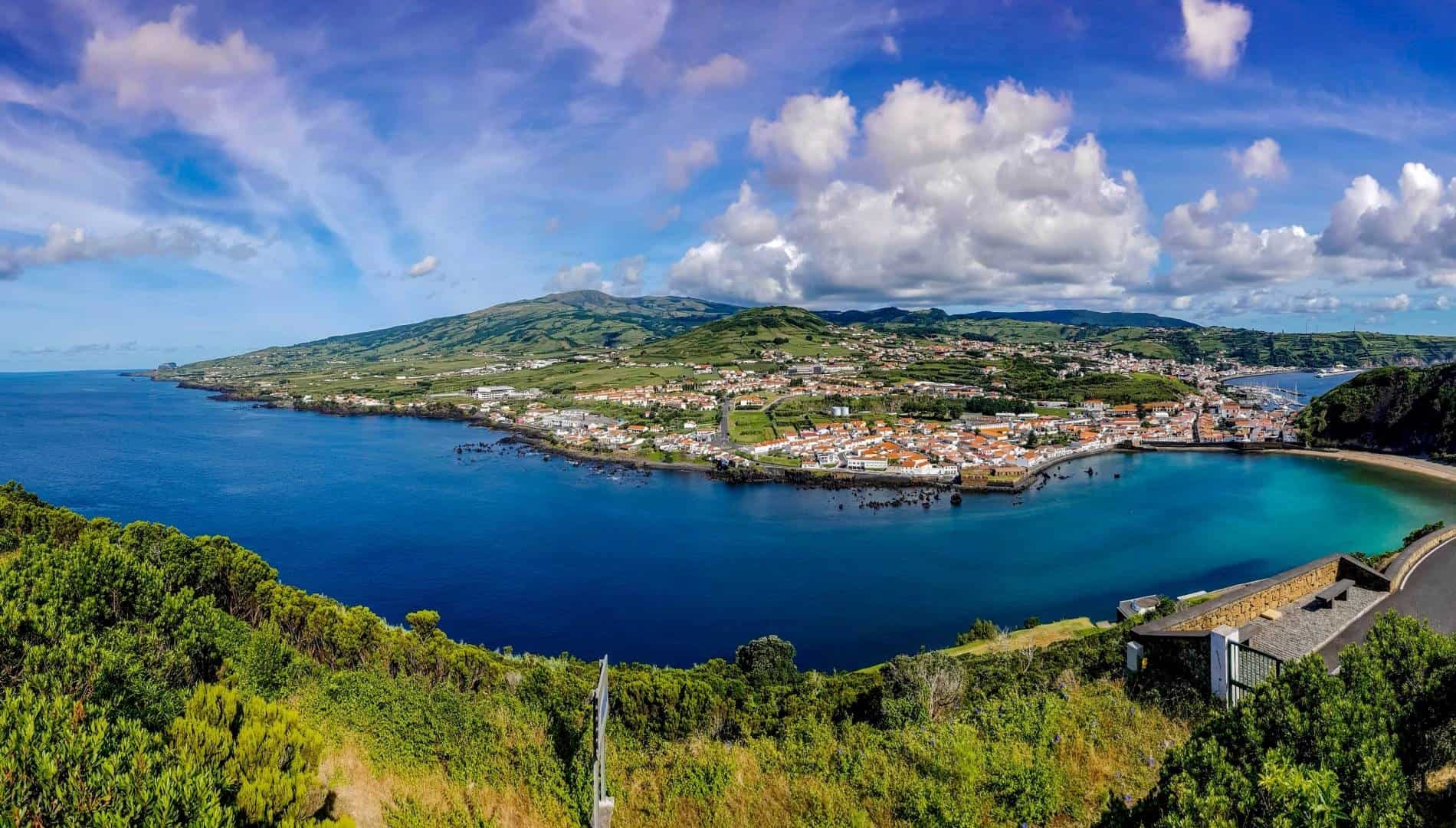 The island of Faial was once a crucial hub for the trans-Atlantic telegraph cables which connected Europe with the west coasts of the USA and Canada. The cables from east and west connected here, and the maritime city of Horta became a highly valued weather station, providing shipping fleets with valuable, up-to-the-minute data on Atlantic weather patterns. This continued right-through to the 1940s with the introduction of Atlantic airmail seaplanes, which used the harbour to mid-crossing refuelling point. Modern-day Horta is also a popular mid-crossing refuelling point for the crews of trans-Atlantic yachts, which is reflected in the friendly hustle and bustle of this small and welcoming city.
The island of Faial was once a crucial hub for the trans-Atlantic telegraph cables which connected Europe with the west coasts of the USA and Canada. The cables from east and west connected here, and the maritime city of Horta became a highly valued weather station, providing shipping fleets with valuable, up-to-the-minute data on Atlantic weather patterns. This continued right-through to the 1940s with the introduction of Atlantic airmail seaplanes, which used the harbour to mid-crossing refuelling point. Modern-day Horta is also a popular mid-crossing refuelling point for the crews of trans-Atlantic yachts, which is reflected in the friendly hustle and bustle of this small and welcoming city.
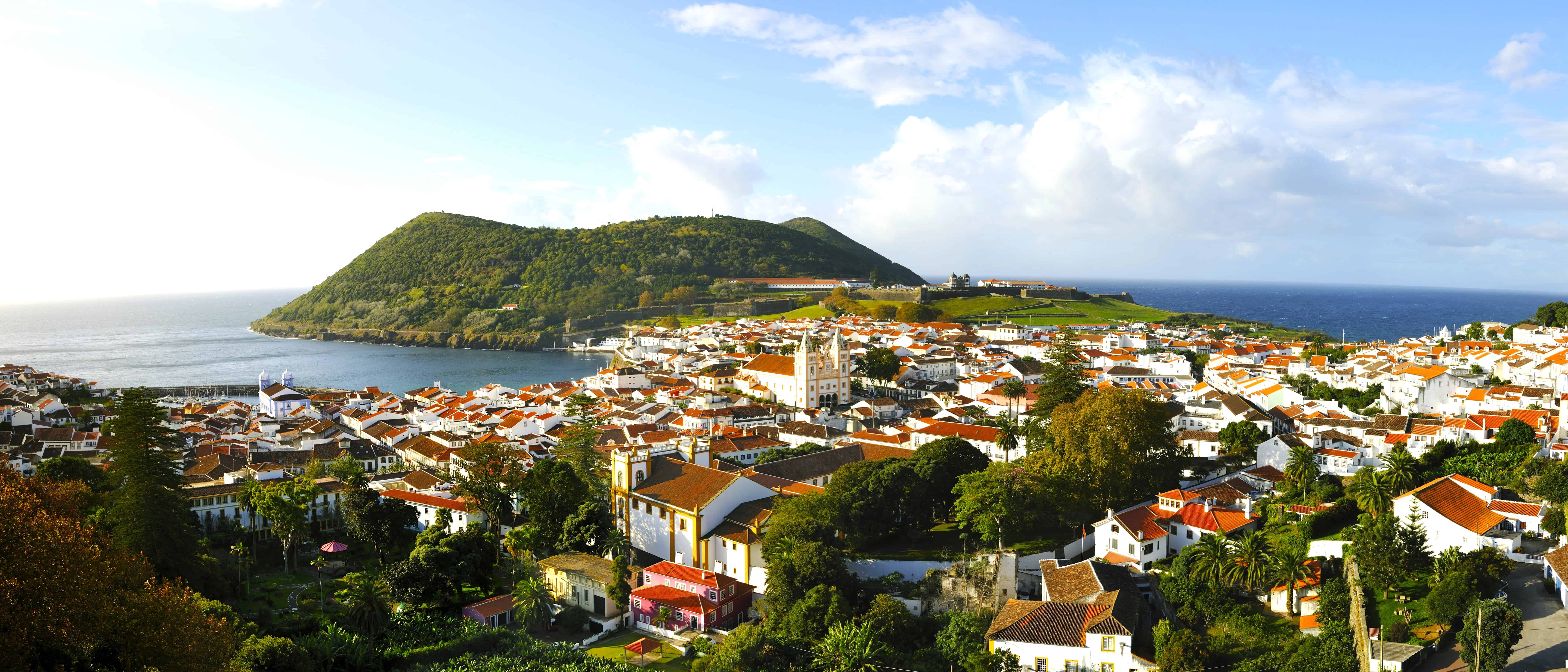 Angra de Heroismo is the Azores’ oldest city, and played a key role in trade between Portugal and her overseas colonies in the 16th century, when fleets sailed the Carreira da India – the sea-route from Lisbon, via the Cape of Good Hope to Goa on India’s eastern coast. The prevailing westerly winds of the North Atlantic would bring the fleets into Angra, where they would restock their supplies before heading home to Lisbon.
Angra de Heroismo is the Azores’ oldest city, and played a key role in trade between Portugal and her overseas colonies in the 16th century, when fleets sailed the Carreira da India – the sea-route from Lisbon, via the Cape of Good Hope to Goa on India’s eastern coast. The prevailing westerly winds of the North Atlantic would bring the fleets into Angra, where they would restock their supplies before heading home to Lisbon.
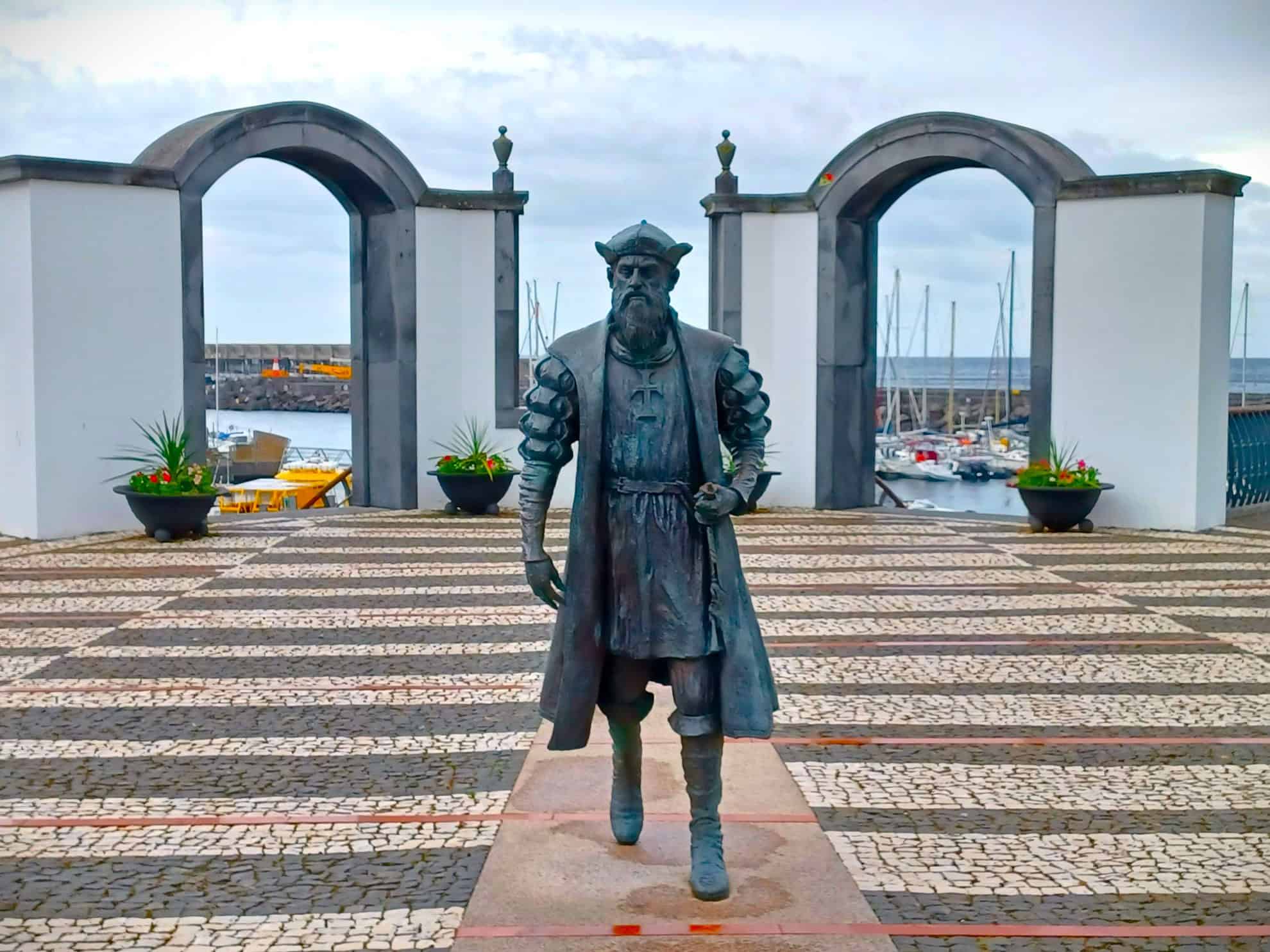 One of Portugal’s most-famous sailing sons, Vasco da Gama, made land here on his famous voyage from India in 1499 – you’ll see his statue striding purposefully from Angra’s quayside towards the centre of the city. Angra’s ‘golden era’ is recorded in the city’s historic, UNESCO-protected architecture, and its museum houses the Azores’ most extensive collection of 18th and 19th century art, ceramics, traditional costumes and musical instruments.
One of Portugal’s most-famous sailing sons, Vasco da Gama, made land here on his famous voyage from India in 1499 – you’ll see his statue striding purposefully from Angra’s quayside towards the centre of the city. Angra’s ‘golden era’ is recorded in the city’s historic, UNESCO-protected architecture, and its museum houses the Azores’ most extensive collection of 18th and 19th century art, ceramics, traditional costumes and musical instruments.
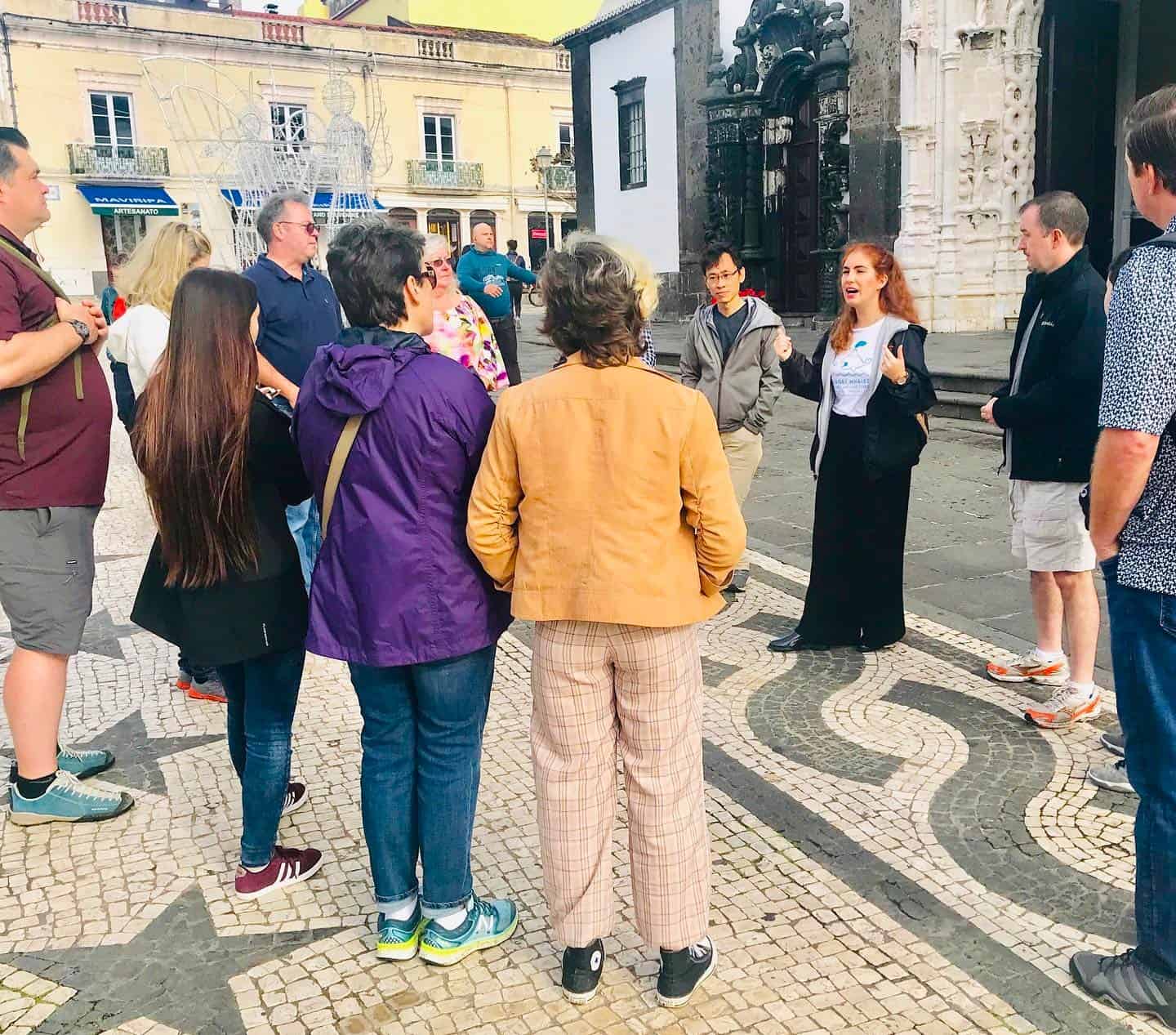 Our friendly and engaging guides are understandably passionate about their hometowns, and they’re experts on combining must-see sights of Angra, Horta and Ponta Delgada with the secret spots you’d otherwise miss. They also love sharing their local knowledge, and you’ll often end a tour with a list of new places to see, recommendations for the best local restaurants, and an invaluable insight into the do’s and don’ts of Azorean etiquette.
Our friendly and engaging guides are understandably passionate about their hometowns, and they’re experts on combining must-see sights of Angra, Horta and Ponta Delgada with the secret spots you’d otherwise miss. They also love sharing their local knowledge, and you’ll often end a tour with a list of new places to see, recommendations for the best local restaurants, and an invaluable insight into the do’s and don’ts of Azorean etiquette.











Follow us online